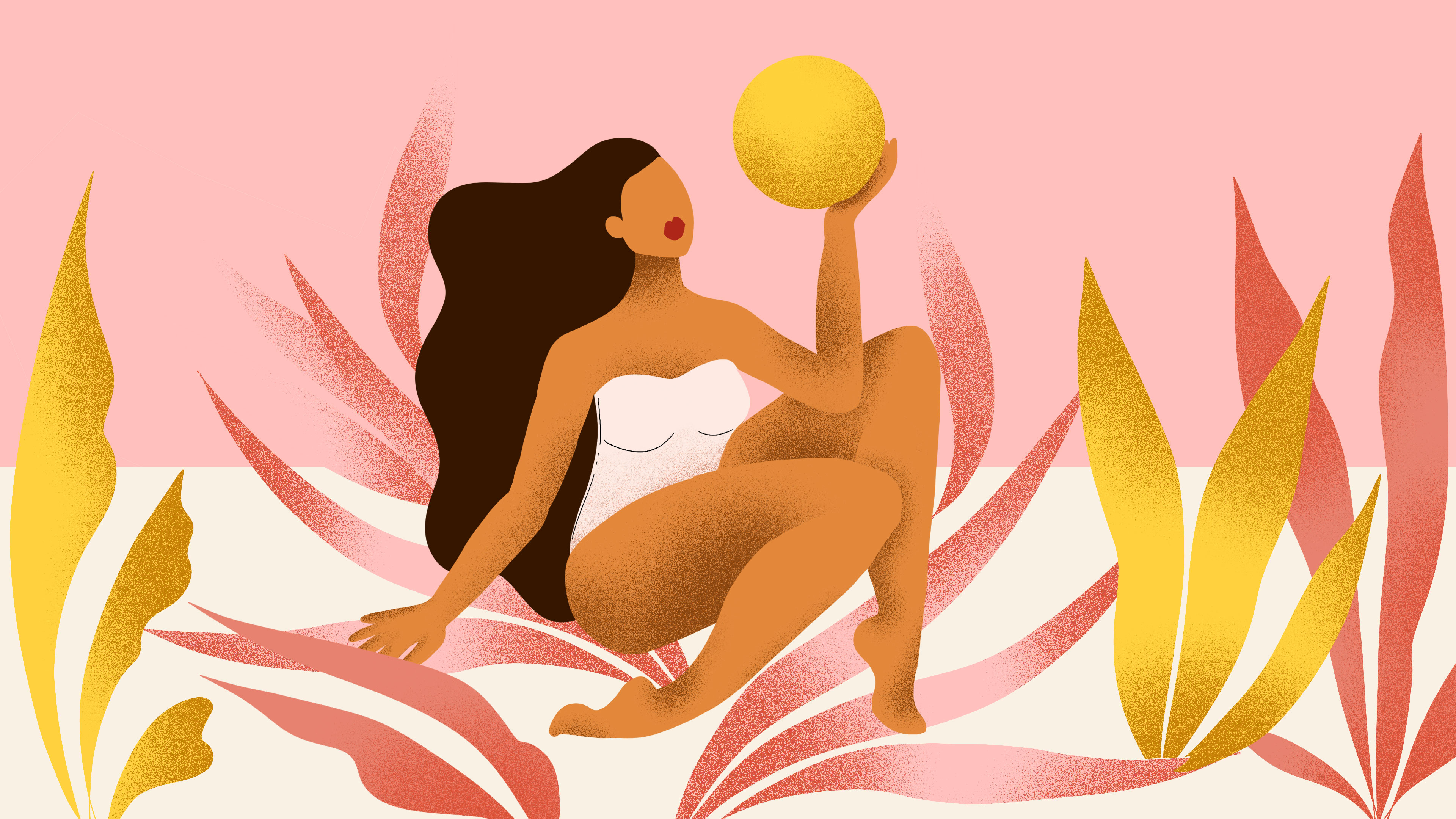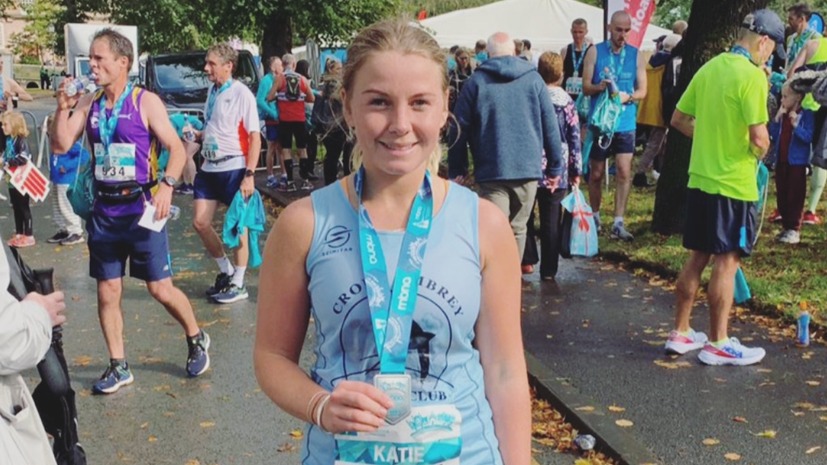Early menopause affects 5% of women: here's how to know if you're at risk
Think you may be suffering from early menopause?

Alice Barraclough

Celebrity news, beauty, fashion advice, and fascinating features, delivered straight to your inbox!
You are now subscribed
Your newsletter sign-up was successful
Google searches for early menopause symptoms are on the rise. And with stats revealing that around 5% of women in the UK go through early menopause at some point in their lives, this hardly comes as surprise.
Yep, that's one in every 100 women.
If you've ever Googled the reasons for a missed period, or searched 'what is perimenopause?', it's definitely worth reading up. Because we know as well as you do that female hormones can sometimes be a bit of a minefield.
So to ease all your worries, we chatted with Dr Laila Kaikavoosi, a representative from the UK's first online menopause centre. Here, she breaks down what early menopause actually is and why it happens, plus the symptoms that you need to have on your radar.
What is the definition of early menopause?
Menopause happening 'early' simply means not having a period for twelve months under the age of 45. For most women, menopause usually happens between the ages of 50 to 55 years old and results in infertility, or the inability to conceive children.
Doctor Kaikavoosi shares that one in 1000 women under 30 and one in 10,000 under 20 also experience even earlier menopause, coined 'premature menopause'.
Hang on, so what’s the difference between early menopause and premature menopause?
The difference between premature menopause and early menopause is when it happens. Early menopause is when a woman's periods stop before the age of 45. Premature menopause is before the age of 40.
Celebrity news, beauty, fashion advice, and fascinating features, delivered straight to your inbox!
A post shared by Online Menopause Centre (OMC) (@onlinemenopausecentre)
A photo posted by on
Is early menopause common?
No, but it is more common than doctors initially thought, shares Kaikavoosi, and many cases do still go undiagnosed. Early menopause (menopause before 45) affects about 5% of women, while premature menopause (menopause before 40) happens in about 1%. It’s incredibly rare to experience menopause in your 20s.
A little like PMDD – that's premenstrual dysphoric disorder – it's widely underreported and needs more funding and research.
So, what is the difference between premature menopause and premature ovarian failure?
While some people use the terms interchangeably, premature menopause is not the same as premature ovarian failure (also known as primary ovarian insufficiency or POI).
POI is when your periods stop suddenly and spontaneously – but there’s still a chance your period will come back. People with POI may still ovulate, menstruate and become pregnant. Yet, with early or premature menopause, you don’t menstruate, and you lose the ability to get pregnant.
What are the main causes of the condition?
There are a whole load of things that play a part, from auto-immune diseases, to genetic factors, to infection. Sadly, for the majority of women - 90%, according to research from OMC - no underlying cause can be found. This can make it even more traumatic, and harder to cope with psychologically.
However, the following have been found to cause the condition:
- Surgery (e.g. removal of ovaries or hysterectomy during which blood supply to ovaries can be severed)
- Medical treatments, like chemotherapy and radiotherapy
- Autoimmune disease, like rheumatoid arthritis, Crohn’s disease or thyroid disease
- Genetic disorders, like Turners syndrome
- Infections, like TB and mumps
- Family history of menopause at an early age.
15 symptoms of early menopause
Symptoms of early menopause are nearly identical to the menopause symptoms, the expert shares.
These range from physical to psychological, and include the following:
- Hot flushes
- Night sweats
- Feeling more achy
- Reduced energy levels
- Brain fog
- Headaches
- Poor quality of hair and skin
- Urinary tract infections (UTIs)
- Increased episodes of cystitis
- Low libido
- Increased anxiety levels
- Irritability
- Low mood
- Tearfulness
- Difficulty controlling temper
How is early menopause diagnosed?
Your GP will make a diagnosis of early menopause based on a number of factors including the regularity of your periods, your symptoms, your family history, and blood tests that will check your hormone levels. They may decide to refer you to a specialist as a result.
Are there any risks associated with early menopause?
Inevitably, early menopause does come with its complications, and can increase your risk of developing other conditions. These include infertility, bone loss or osteoporosis, potential risk of heart disease brought on by low oestrogen levels, and mood disorders like stress, anxiety and depression. Please know, though, that help is available – including HRT – should you need it.
Here are some top tips for coping with the condition.
5 top tips for coping with early menopause symptoms
1. Spot your symptoms
Sounds simple, isn't so much when you're busy day-to-day and pass your lethargy off as general tiredness. Tune in to yourself and make sure to keep a record of any odd symptoms you are experiencing. This will be helpful for your doctor, if you do have to visit.
2. Expand your knowledge
Don't use Google as a replacement for a medical professional – this is never a good idea – but do read up on what your symptoms may mean, and possible treatments, too.
"Increasing your knowledge about this condition will help you to get the correct treatment started early enough to prevent future health problems," shares Kaikavoosi.
3. Talk to a specialist
If you notice any of the above symptoms, the most important thing to do is to speak with your doctor, Kaikavoosi stresses. "Do make sure you see a specialist and get checked," she shares.
"Testing blood hormone levels is important to establish the diagnosis and to get the right treatment. Get early assessment and start on the most suitable hormone replacement therapy as this can prevent future diseases like early cardiovascular disease, dementia and osteoporosis," she concludes.
"Premature ovarian failure made me menopausal at 28"

Katie Ayres, a nanny from Ludlow, Shropshire, suffered from early menopause in her late twenties. When her periods initially became irregular, she thought nothing of it - she was young and healthy. But after an accident, her periods stopped altogether. This is her story.
“My periods have always been irregular but I just put it down to having a contraceptive implant. I didn’t really worry about it. But after a bad riding accident in 2017, my periods stopped altogether."
It was as if my body had stopped working and had been put into trauma
Tests revealed I had Premature Ovarian Insufficiency (POI), a condition that means the ovaries stop producing eggs years (and in some cases decades) before they should. POI also means the ovaries are unable to produce the hormones estrogen and progesterone, which are important for a woman’s health and wellbeing."
"The doctors said the POI could have been brought on by the accident but they aren’t really sure what caused it. I was having hot flushes about three or four times a day – suddenly I’d just be absolutely dripping. My energy levels were very low – I do a lot of marathons but everything was just an effort. I just didn't feel myself.”
“I sought help from Dr Laila at the Online Menopause Centre and she was great. She gave me a personalised treatment plan of hormone replacement therapy containing estradiol, progesterone and testosterone. Within six weeks, I was feeling better and more like my old self. I hardly never have any hot flushes any more."
“I am quite strong and have been through a lot but some days I have down days – when friends and family say ‘oh I’m pregnant’. It’s not jealousy, its envy because I will never be able to have that."
“I would really like to have children but realistically the only way I could do that would be through an egg donor which is quite a big thing. Meeting someone and having to tell them that makes me sad.”
“When I got diagnosed, I started to do a lot of research – I realised there were a lot of girls with it. Some are younger than me. Being on social media and following help groups like The Daisy Network has really helped because I realised it isn’t just me."
“My family have been very supportive and I realise I am lucky. I also do a job I love, working with horses, which brings me a lot of happiness.”
For more information, head to the online menopause centre, where they offer virtual video consultations and individually tailored treatment plans. Similarly, the NHS website and The Daisy Networks have handy guides. Do visit your doctor, if you're worried.
In partnership with Vichy. Marie Claire created this content as part of a paid partnership with Vichy. The contents of this article are entirely independent and solely reflect the editorial opinion of Marie Claire.

Ally is Marie Claire UK's Senior Health and Sustainability Editor, a well-regarded wellness expert, ten-time marathoner, and Boston Qualifying runner.
Utilising her impressive skillset and exceptional quality of writing, she pens investigative, review and first-person pieces that consistently demonstrate flair and originality.
As well as writing, Ally manages a team of freelancers, oversees all commissioning and strategy for her pillars, and spearheads the brand's annual Women in Sport covers, interviewing and shooting the likes of Mary Earps, Millie Bright, and Ilona Maher. Shortlisted for three BSMEs and winning one in 2022, Ally lives and breathes her verticals: her eye for a story and connections within the wellness sphere are unrivalled. Follow Ally on Instagram for more.